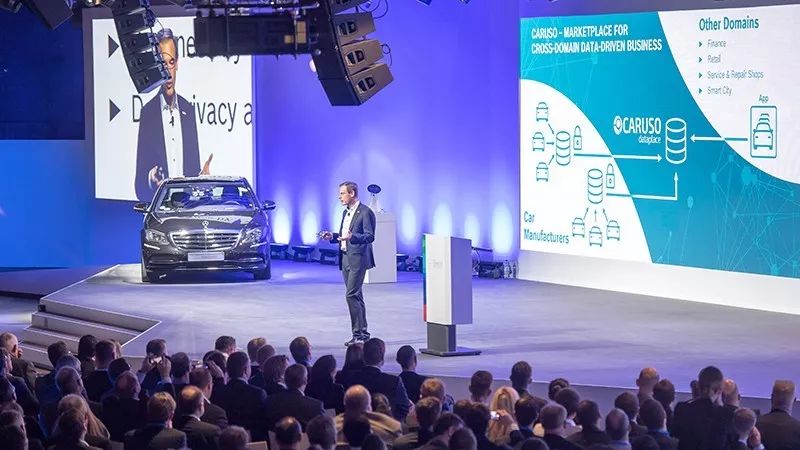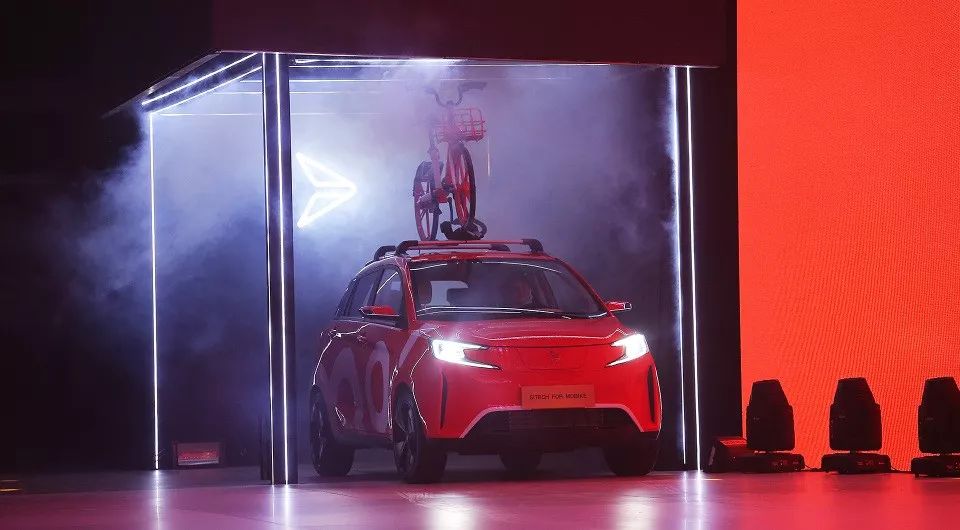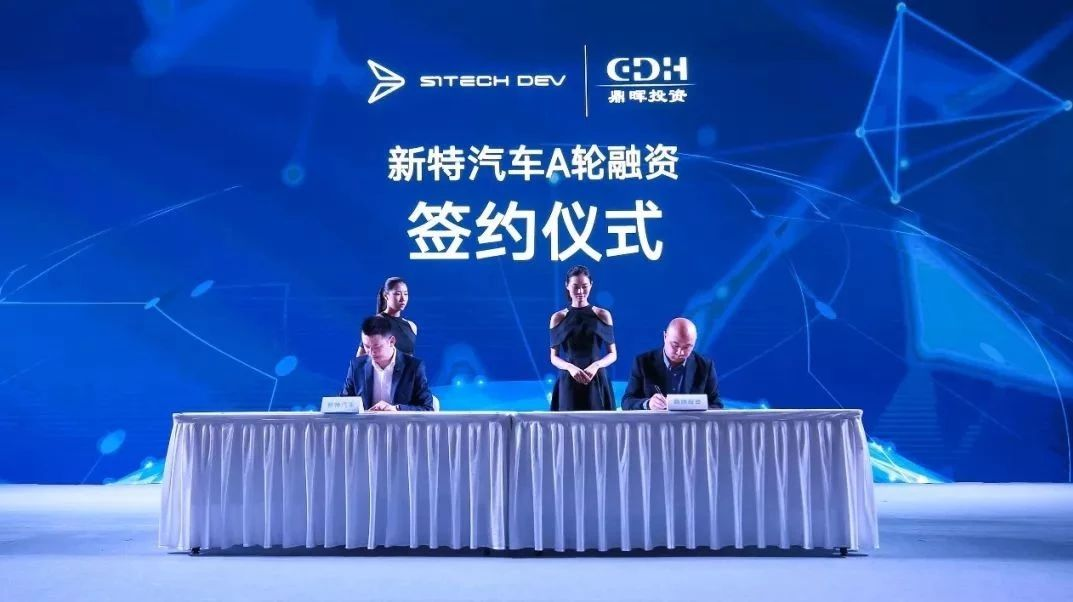On May 25th, local car manufacturer New Baojun held a press conference in Gui’an New District, Guizhou, announcing three things:
- Raised “hundreds of millions of dollars” in Series A funding with investment led by DHVC, and followed by investors including Hongjia Capital. However, the specific amount of financing was not disclosed at the press conference.
- Formed the “Electric Intelligent Sharing Travel Industry Alliance” with joint efforts from FAW, China Mobile and other companies.
- Reached a strategic cooperation agreement with Bosch on automated valet parking, among other things.
Series A Funding
New Baojun’s Series A funding was led by DHVC with participation from Hongjia Capital and other institutions. However, the specific amount of funding was not disclosed at the press conference. In addition, New Baojun announced its Series A funding in mid-2018, which seems to be a different pace compared with its counterparts, such as NIO and WM Motor.

Later in the media group interview, Founder and CEO of New Baojun, Xian Yue, responded to these questions.
First of all, it should be noted that New Baojun was established less than a year ago, and the public’s earliest awareness of New Baojun was at the press conference on April 19th, where New Baojun released its first mass-produced car model, DEV 1. At that time, it had only been 8 months since New Baojun was established. I know what you are thinking: PPT car making, swindling and profiteering…
However, DEV 1 is a small car that targets the A0 market segment, and other cars of the same level include the Volkswagen Polo and Golf. It is inevitable for the R&D expenditure of A0 leveled small cars to be lighter when compared with the hot and popular mid-sized SUVs. In addition, New Baojun has also reached a cooperation agreement with FAW to produce cars, which reduces the huge investment on the manufacturing side. In other words, the lighter operating model and full use of industry resources have allowed New Baojun, a latecomer, to eventually enter the forefront of the new car army.
Finally, regarding the financing scale, Xian Yue said, “there will be a special release later, but for now, the amount is in the hundreds of millions of US dollars. What is your assessment?” With Series A funding in the hundreds of millions of US dollars, New Baojun has squeezed into the head of the new car manufacturers.
“Electric Intelligent Sharing Travel Industry Alliance”
At the press conference, New Baojun also initiated the establishment of the “Electric Intelligent Sharing Travel Industry Alliance”. The chairman units include the European Economic Integration (China) Committee, Gui’an New District, FAW, China Mobile, iFlytek, Lenovo Distinguished Communications, Chengdu Xinneng Motors; and the first batch of members include XPeng Motors, Shanghai Electric Drive and Greentech, UUZU, etc.
It involves the automotive manufacturing, 5G, voice interaction, charging infrastructure, autonomous driving, and new energy industry. Xian Yue said “all alliance members are in partners in the upstream and downstream of the industry chain with New Baojun; New Baojun and its suppliers and channel partners have jointly created a platform.”According to official statements, the aim of the alliance is to “standardize communication interfaces and protocols for information, reservation, payment standards and other standards related to new energy vehicle charging station equipment, scenario application service platforms, intelligent vehicle networks and to have a unified Internet service data standard.”
The establishment of this alliance is a official endorsement of my previous judgement on Yudo’s “light operation mode and full use of industry resources”.
Strategic Cooperation with Bosch on Automated Valet Parking
Automated valet parking, also known as AVP (Automated Valet Parking) technology, was showcased by Daimler Chairman Dieter Zetsche and Bosch CEO Volkmar Denner at Bosch Connected World on February 21, which enables low-cost automatic parking without requiring 5G or expensive sensors through simple modifications to existing parking lots.

Automated parking is also one of the two main features of Apollo’s trial operation of the autonomous vehicles recently launched with Pand Auto. This is understandable as support for automated parking will significantly improve operation costs, efficiency and customer experience for ride-sharing platforms. Therefore, it is logical that Bosch has found a partner in Yudo, which specializes in bike-sharing services, to join with Mobike in building a bike-sharing ecosystem.
During the Beijing Auto Show, Xu Daquan, Executive Deputy General Manager of Bosch China, said that there are nearly 100 new car companies in China. Therefore, the fact that Yudo has reached a strategic cooperation with Bosch, with the attendance of Chen Ming, the President of Bosch Connected Mobility Solutions, after NIO, Chehejia and other similar companies, demonstrates its significance within Bosch.
Future of Yudo
Since its founding conference on April 19th, Yudo has remained relatively unknown to most people, with a few people only referring to it as the bike-sharing company that partnered with Mobike. However, if we take a closer look at the company, we can see that many of its strategies are worth pondering.
 The opposite of NIO is Tesla, the latter being a typical representative of doing everything themselves. For example, investing in battery factories, developing self-driving chips, and creating a ride-share platform, Tesla Network. However, NIO does not follow this path. As seen from the alliance with mobility service providers, NIO makes full use of supplier resources.
The opposite of NIO is Tesla, the latter being a typical representative of doing everything themselves. For example, investing in battery factories, developing self-driving chips, and creating a ride-share platform, Tesla Network. However, NIO does not follow this path. As seen from the alliance with mobility service providers, NIO makes full use of supplier resources.
As NIO began with making cars (its two subsequent models will also aim at markets of A0 and A00 levels respectively), it fully utilizes the suppliers’ mature system to create new products, instead of reinventing the wheel, making NIO agile while maintaining a fast pace of development. In fact, the strategies of focusing on cooperation rather than self-development research and development and focusing on the small car market complement each other.
Let’s take a look at NIO’s effectiveness. According to Xian Yu (China’s version of Craigslist), NIO has already signed contracts for 40,000 DEV1 vehicles in 25 cities, which will be launched in September and delivered on a large scale at the end of the year. On the 2B side, the acquisition of Mobike by Meituan had no impact on NIO’s cooperation with Mobike. On the 25th, Meituan’s Senior Vice President Wang Huiwen visited NIO’s factory to check on the production of Mobike vehicles. Mobike shared cars will be delivered this year, but under the non-exclusive cooperation agreement, NIO is also negotiating with multiple car-sharing platforms and will launch more customized vehicles in the future.
Are the local governments, investors, and suppliers foolish? How did a new car manufacturer raise hundreds of millions of dollars for its Series A round so quickly in 2018?
By focusing on the target market, developing resource integration and management capabilities based on basic intelligent and shared car manufacturing concepts, and “returning to the product and commercial nature.”
Of course, this does not mean that NIO has already reached a safe zone. In the 2B market alone, we cannot forget that Autohome, Didi, and Daimler set up a joint venture company to design and develop models for the 2B market. We should not underestimate the collaboration of a super product manager like Li Xiang and the largest mobility platform in the world, Didi.
It is true that Xian Yu said: The reshuffle race of new energy vehicles has already begun.

 * Baidu Apollo joins hands with Pand Auto: on-demand recruitment and dispatch
* Baidu Apollo joins hands with Pand Auto: on-demand recruitment and dispatch

This article is a translation by ChatGPT of a Chinese report from 42HOW. If you have any questions about it, please email bd@42how.com.
